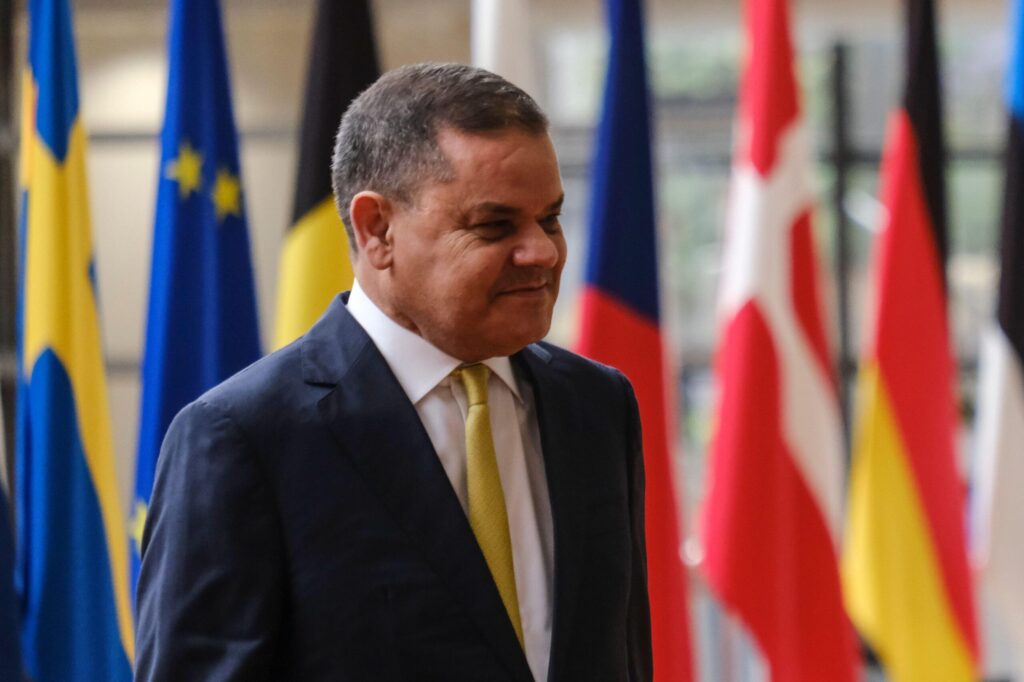Nearly two decades since its last licencing round, Libya is once again courting international oil investors.
Top officials were in London this last week promoting 22 areas for exploration and development as part of a renewed push to attract foreign capital.
The bidding round, announced on March 3 by Libya’s interim executive authority, the Government of National Unity (GNU), comes as Africa’s second-largest oil producer seeks to significantly boost its output.
The 22 blocks, evenly split between onshore and offshore zones, are central to Tripoli’s ambitions to ramp up production from 1.4 million barrels per day (bpd) to 2 million bpd.
Global pitch
Speaking at the UK investor event on April 6, Masoud Suleman, chairman of Libya’s National Oil Corporation (NOC), detailed Libya’s plans to offer acreage in key basins – Sirte, Murzuq, and Ghadamis – as well as offshore blocks in the Mediterranean.
Suleman said the round – still in its early stages – has already generated strong interest from companies in Turkey, Egypt, Russia and Algeria.
Among the main draws is a shift in contract structure: a move away from the restrictive EPSA IV model toward more investor-friendly exploration and production-sharing agreements, offering up to 35 percent participation – considerably more generous than the sub-3 percent terms of previous rounds.
The next promotional roadshow for the bids will take place in Istanbul on 17 April. The NOC aims to finalise agreements between 22 and 30 November.
Political realities
However, investment in Libya remains a high-risk venture.
Since the fall of the country’s leader, Muammar Gaddafi, in 2011, the country has been riven by conflict and political division.
Today, it is effectively governed by two rival administrations – one in the west centred on Tripoli (the GNU) and the other backed by the House of Representatives in the east centred on Tobruk – both claiming legitimacy and competing for control over national resources.
This power struggle continues to undermine investor confidence in Libya’s oil sector as a stable operating environment.
Both the House of Representatives and the High Council of State have strongly criticised the GNU’s new bid round, saying it goes beyond the interim government’s limited mandate to oversee elections, promote reconciliation and unite the military establishment.
Several non-government organisations, including the Council of Competition and Antitrust, have called for the process to be suspended, citing a lack of transparency and growing concerns that unilateral moves could deepen Libya’s political divides.
Risky business
Meanwhile, last year’s failed attempt to award a 40 percent production share in the Hamada NC-7 block – Libya’s largest underdeveloped gas field – serves as a reminder that domestic resistance can quickly scupper the country’s energy plans.
Beyond political complications, Libya’s financial outlook is precarious. The country’s Central Bank recently warned that declining oil revenues and unchecked spending from rival governments are eroding the country’s fiscal buffer.
Reaching the target of 2 million bpd will require an estimated $3-4 billion in investment – an uphill task in such a volatile environment.
Libya’s latest pitch to the global oil market may look alluring on paper – rich reserves and reformed contract terms – but the success of this licensing round hinges on Libya’s ability to deliver political stability, legal certainty, and a cohesive national vision.
This is no small feat, and a state of affairs that many would argue is beyond reach at the moment.
While surely all Libya’s 7.4 million people would like to see their country prosper in an accountable and transparent manner, the present circumstances remain extremely challenging.
For now, international oil companies are watching closely. The question is whether they see opportunity – or a risk too far.
Salem Maiar is a consultant in Libyan natural resources, finances and geopolitics
Register now: It’s easy and free
AGBI registered members can access even more of our unique analysis and perspective on business and economics in the Middle East.
Why sign uP
Exclusive weekly email from our editor-in-chief
Personalised weekly emails for your preferred industry sectors
Read and download our insight packed white papers
Access to our mobile app
Prioritised access to live events
Already registered? Sign in
I’ll register later



